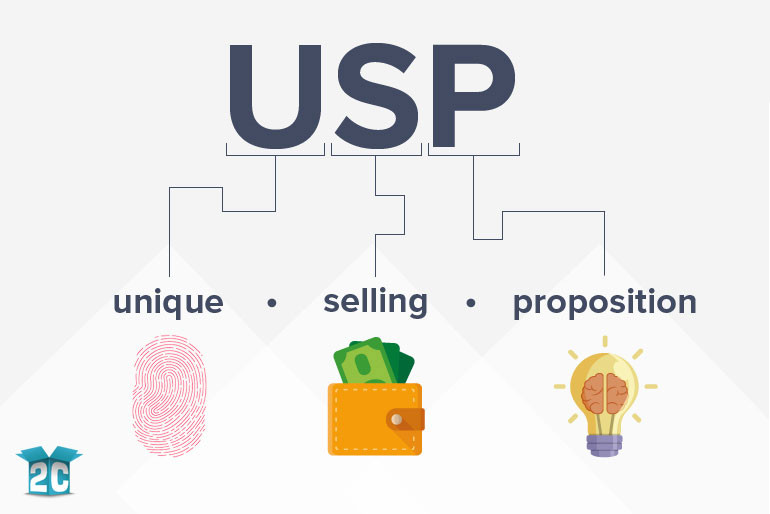
As we enter 2025, we reflect on the past year of contributing to the marketplace of ideas through this column and the broad spectrum we have traversed on brand management and entrepreneurship with an Afrocentric approach.
We do so with a sense of humility and satisfaction that we are contributing towards transformative knowledge to the African community through pragmatic proposals and shaping the way forward from our unique African context.
We also want to appreciate the followers and co-creators of this column who engaged us through massive feedback on different platforms and promise to keep on interrogating the subject matter with the collective stamina from the audiences and our side deserved.
As we start the year, we rally the army of entrepreneurs and thinkers from our pan-African approach to join us as we reflect on this inaugural piece for the year and zoom in on the subject matter of unique selling proposition (USP).
In marketing, USP is a notion that calls attention to the unique characteristics of our product or service that set it apart from similar offerings on the market.
When it comes to marketing tactics, one of the key factors that helps explain to customers the product’s benefits and the value of the brand is the development of a significant customer base for our offering.
Entrepreneurs need to reflect on the USP as we commence a highly complex year, especially with global developments that are likely to affect Africa significantly.
In 2024, the world saw a significant number of countries holding elections in a single year, including the most substantial economic players, such as the US, in the global North and South Africa, among others.
- Open letter to President Mnangagwa
- Feature: ‘It’s worse right now than under Mugabe’: Sikhala pays the price of opposition in solitary cell
- Masvingo turns down fire tender deal
- Human-wildlife conflict drive African wild dogs to extinction
Keep Reading
Further, global conflict, shifts in climate conditions, and the post-Covid-19 economic shocks that have seen most economies subdued require African brands to be better positioned on a higher community cause and purpose than ever in providing solutions relevant to African societies and markets.
There is no better starting point than focusing on the USP.
In that regard, we analyse the key features and benefits of a USP for entrepreneurs and hope that as we commence the year and beyond its scope, our businesses and brands will be more relevant and competitive in serving the continent.
As such, the following features of the USP are critical to note:
Strong USP: The USP needs to be simple and short to ensure potential customers remember it. It should also be short to keep their attention and help them remember it for a long time.
Relevance to the target market: Every business wants to reach a particular group of people with their product or service. Because of this, the main needs and wants of the target people should be in the USP.
Benefits that make service product stand out: The USP should show the service/product’s main benefits and unique qualities for target markets to engage and purchase.
Competitive advantage: The USP should explain why the service/product is better than all other choices on the market.
In all marketing materials: The USP, which makes the company unique and its core values, should be shown in all marketing materials it uses to reach customers.Effect that lasts: A USP should last long and be hard for competitors to copy.
As we have alluded to earlier, the year is complex, and the target audiences and markets are looking for solutions that better address their needs at the most competitive cost structures. A USP should speak to the mind of the customer and the stakeholder competitively.
Having noted the key elements that aid in setting the service/product mix and contribute to competitive advantage, it is key to highlight how to develop the USP as highlighted below:
Know your target audience: To make a strong USP, you must know what your target customers want, need, and are struggling with. Do intense market studies to find out what’s important to them and how you can better understand their situation. It is only when you know the market that you can better serve personalized services and products.
Understand competitors: To identify gaps in the market, examine your rivals. Learn what they offer and how you can differentiate yourself. This is highly critical as we operate in cluttered markets where there is a lot of noise. The brand should come out clear and help the stakeholder make a repetitive choice.
Find your unique qualities or benefits. What makes your service or product unique? It could be a better price, quality, customer service, or a unique trait that fixes many people’s problems. The unique trait should speak to the soul of the brand and be within its reach to satisfy so that there is a seamless match between the brand promise and the offering.
Solve a problem (African challenges): Your USP can work well if it solves a specific problem or pain point. Customers are more likely to pick a service that fixes their problems right away. Today, Africa is at crossroads and requires scale in the quantity and quality of entrepreneurs who appreciate the problems and provide the context-specific solutions well-articulated in the Sustainable Development Goals (SDGs) and the African Union’s Agenda 2063.
Make it clear and specific: It should be simple to explain what your USP is. Keep your wording simple and free of jargon. It should hit home right away with your target audiences.
Continuously Improve to the end: Once you have your USP, test it with a small group. Get comments on it and make changes if needed. Engage different groups with different opinions and harness the collective effort. It should make you feel strong and good.
Till then, think, eat, sleep and dream branding!
*Dr Chigora is a businessman and academic. He is a senior lecturer at the Africa University’s College of Management and Business Sciences. He is also a global business modelling practitioner. His doctoral research focused on Business Administration (Destination Marketing and Branding Major, UKZN, SA). He is into agribusiness and consults for many companies in Zimbabwe and Africa. He writes in his personal capacity and can be contacted for feedback and business at fariechigora@gmail.com, www.fachip.co.zw, WhatsApp mobile: +263772886871.
*Dr Moyo is an extra-ordinary researcher with the University of North West, South Africa’s Social Transformation School. He holds a Doctorate in Business Administration (research focus on new media and corporate reputation management, UKZN), Chartered Marketer, Fellow CIM, communications and reputation management expert based in Harare. He can be contacted at moyojz@gmail.com @TabaniMoyo (X)










